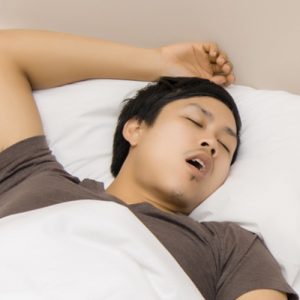 San Francisco, Marin, and Oakland, CA
San Francisco, Marin, and Oakland, CA
Do you have obstructive sleep apnea? If so, you need to seek professional medical care as soon as possible. Sleep apnea is a serious sleep breathing disorder that impedes or altogether interrupts the breathing of a person during sleep.
What happens during a sleep apnea episode?
A sleep apnea patient experiences blockages of their airway that occur as many as hundreds of times during the night. These blockages can be partial or complete, rousing a person from sleep and disrupting the sleep cycle. As a result, a person with sleep apnea often feels fatigued no matter what time they go to bed or how many hours of sleep he or she gets—or thinks they are getting.
Many individuals believe there is only one method of treating sleep apnea—through the use of a CPAP machine. However, a sleep apnea dentist such as the ones on staff at Glen Park Dental can treat sleep apnea and its corollary issues by a variety of other means.
CPAP is not always the answer
Standing for continuous positive airway pressure, CPAP machines help an individual maintain an open airway by wearing a mask during sleep that is connected to the machine.
CPAP is considered one of the go-to treatments for sleep apnea, but it is not perfect.
Sleep apnea patients who use the treatment often complain of a wide variety of side effects, including:
- General feeling of discomfort
- Skin irritation caused by wearing the mask
- Frequent dry mouth and/or throat
- Difficulty sleeping, either for the patient or their sleeping partner, because of the noise that is generated by the machine
- Problems with intimacy
- Embarrassment or self-consciousness regarding use of the machine
- Inconvenient during travel
- Can be challenging to maintain
Many people who suffer from sleep apnea think that CPAP is the only method of treatment available to them. As a result, they opt not to seek treatment. This is the worst thing a sleep apnea sufferer can do. The disorder will not go away by itself. You must seek professional diagnosis and treatment for the disorder. Left untreated, sleep apnea patients face a magnified risk of certain chronic and life-threatening conditions including heart disease, stroke, diabetes, and depression.
What is our philosophy on sleep apnea treatment?
Our preferred method of sleep apnea treatment is the use of oral appliance therapy, which focuses on treating sleep apnea by addressing the cause—your inability to maintain an open airway. This therapy is performed through the use of an oral appliance, which keeps the lower jaw in its preferred forward resting position. Once your jaw is aligned properly, this helps you maintain an open airway, preventing the blockages that cause sleep apnea and allow you to get the REM sleep necessary to restore mind and body.
You probably have seen an assortment of mouth guards and anti-snoring mouthpieces available for purchase over the counter. Our oral appliances are superior to these store-bought mouthpieces. Not only are they made of higher-quality materials, but also each of our oral appliances is custom-designed for every individual sleep apnea patient. Using impressions of your mouth as a model to design the mouthpiece helps guarantee a snug and effective fit for the oral appliance, which makes sure you can wear it comfortably throughout the night, every night.
Oral appliance therapy is proven effective in treating sleep apnea. In fact, sleep apnea patients who receive oral appliance therapy have a higher success rate and report fewer negative side effects or issues than patients who use CPAP machines.
Before beginning any course of treatment for sleep apnea, our sleep apnea dentists first will make sure to diagnose the disorder, which can be done by conducting a sleep study or having the patient undergo an airway evaluation. This is a quick and comfortable process where the doctor examines the airway itself to determine if a blockage or collapse of soft tissue exists.
From there, before treatment begins, a thorough and comprehensive evaluation will take place, taking into account the following factors:
- The severity of your sleep apnea
- Any other oral health issues that may complicate treatment
- An evaluation of your medical history, and other pre-existing conditions
Do I have sleep apnea?
Many individuals with sleep apnea do not even realize they suffer from the disorder, or that other issues such as obesity, chronic fatigue or poor performance in work or school are being caused by a sleep breathing disorder such as sleep apnea.
Loud snoring is the primary symptom of a case of sleep apnea. Click here to learn more about sleep apnea and its symptoms. If you snore and suffer from any of these other issues, you should seek the care of a medical professional like a sleep apnea dentist as soon as possible. If you do have sleep apnea, the condition and the other issues stemming from it will only get worse.
Take the next step. Your sleep, your health, and even your life may depend on it. Call the office of Glen Park Dental at (415) 585-1500 to schedule a consultation.
Glen Park Dental is here to serve patients in the areas of Marin, Oakland, and San Francisco, California.


